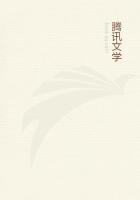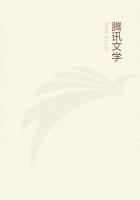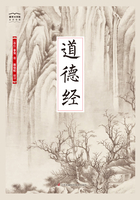The Misses Cabot--their Christian names were Priscilla and Hortense--she found to be middle-aged maiden ladies, eminently prim and proper, and the educational establishment over which they presided a sort of Protestant nunnery ruled according to the precepts of the Congregational Church and the New England aristocracy. Miss Priscilla was tall and thin and her favorite author was Emerson; she quoted Emerson extensively and was certain that real literature died when he did. Miss Hortense was younger, plumper, and more romantic.
She quoted Longfellow and occasionally Oliver Wendell Holmes, although she admitted she considered the latter rather too frivolous at times. Both sisters were learned, dignified, and strict disciplinarians. Also, in the eyes of both a male person younger than forty-five was labeled "Danger--Keep Away." But one creature of the masculine gender taught in their school; he was white-haired Doctor Barnes, professor of the dead languages. It was the prevailing opinion among the scholars that Doctor Barnes, when at home, occupied an apartment in the Greek Antiquity section of the Art Museum, where he slept and ate surrounded by the statues and busts of his contemporaries.
As for the scholars themselves, there were about forty of them, girls--or young ladies: the Misses Cabot invariably referred to and addressed them as "young ladies"--from Boston and New York and Philadelphia, even from Chicago and as far south as Baltimore.
Almost all were the daughters of well-to-do parents, almost all had their homes in cities. There were very few who, like Mary-'Gusta, had lived all their lives in the country. Some were pretty, some were not; some were giddy and giggly, some solemn and studious, some either according to mood; some were inclined to be snobbish, others ****** and "everyday." In short, the school was like almost any school of its kind.
Mary-'Gusta entered this school and, doing so, ceased to be Mary-
'Gusta, becoming Miss Lathrop to her instructors and Mary to her intimates among the scholars. And at Mrs. Wyeth's she was Mary or Miss Lathrop or Miss Mary, according to the age, length of acquaintance, or station of the person addressing her. But she always thought of herself as Mary-'Gusta and her letters written to Uncle Shad or Uncle Zoeth were so signed.
She found, after the hard work of beginning, that she could keep abreast of her class in studies without undue exertion. Also she found that, the snobs excepted, the girls at the Misses Cabot's school were inclined to be sociable and friendly. She made no bid for their friendship, being a self-respecting young person whose dislike of imitation was as strong as ever, but, perhaps because she did not bid or imitate but continued to be simply and sincerely herself, friends came to her. Most of these friends received monthly allowances far greater than hers, and most of them wore more expensive gowns and in greater variety, but she showed no envy nor offered apologies, and if she sometimes wished, being human, that her wardrobe was a trifle more extensive she kept that wish to herself.
Her liking for Mrs. Wyeth grew into a real affection. And the prim and practical matron grew more and more fond of her. The girl came to be considered, and almost to consider herself, one of the family.
The "family" consisted of Mrs. Wyeth, Mary, Miss Pease, the other "paying guest," and Maggie, the maid, and Nora, the cook. Miss Pease was an elderly spinster without near relatives, possessed of an income and a love of travel which she gratified by occasional European trips. She and her closest friend, Mrs. Wyeth, disagreed on many subjects, but they united in the belief that Boston was a suburb of Paradise and that William Ellery Channing was the greatest of religious leaders. They at-tended the Arlington Street Unitarian Church, and Mary often accompanied them there for Sunday morning or afternoon service.
The conviction of the Misses Cabot that youthful manhood was dangerous and to be shunned like the plague Mary soon discovered was not shared by the majority of the young ladies. If Miss Priscilla and Miss Hortense had had their way Harvard University and the Institute of Technology would have been moved forthwith to some remote spot like the North Pole or San Francisco. There were altogether too many "cousins" or "sons of old family friends" calling at the school to deliver messages from parents or guardians or the said friends. These messengers, young gentlemen with budding mustaches and full-blown raiment, were rigidly inspected and their visits carefully chaperoned: but letters came and were treasured and the cheerful inanity of their contents imparted, in strict secrecy, to bosom friends of the recipients.
Mary received no such letters. No cousins or family friends called to deliver messages to her. No photographs of young fellows in lettered sweaters were hidden among her belongings. Her friends in the school thought this state of affairs very odd and they sometimes asked pointed questions.
Miss Barbara Howe, whose home was in Brookline and whose father was the senior partner of an old and well-known firm of downtown merchants, was the leading questioner. She liked Mary and the latter liked her. Barbara was pretty and full of spirits and, although she was the only child, and a rather spoiled one, in a wealthy family, there was no snobbishness in her make-up.
"But I can't see," she declared, "what you have been doing all the time. Where have you been keeping yourself? Don't you know ANYBODY?"
Mary smiled. "Oh, yes," she replied, "I know a good many people."
"You know what I mean. Don't you know any of the fellows at Harvard, or Tech, or Yale, or anywhere? I know dozens. And you must know some. You know Sam Keith; you said you did."
Mary admitted that she knew Sam slightly.
"Isn't he fun! Sam and I are great chums. Doesn't he dance divinely!"
"I don't know. I never saw him dance."















